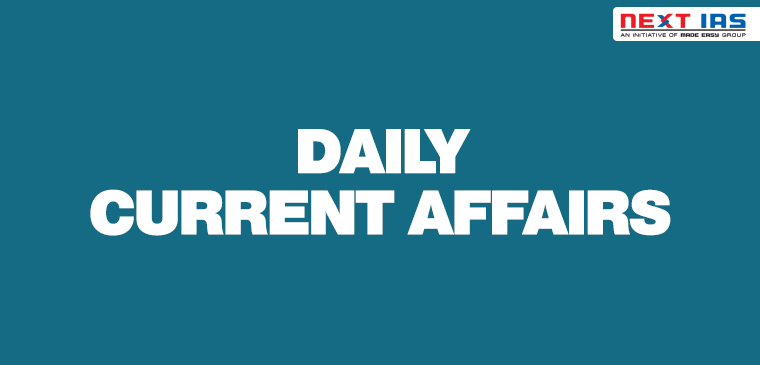
In News
The Supreme Court has directed the government to ensure that none of the estimated 38 crore migrant workers goes hungry during the pandemic.
About
- The Supreme Court directed all states and Union Territories (UT) to implement the One Nation, One Ration Card (ONORC) system by 31st July 2021.
- The scheme allows migrant labourers covered under the National Food Security Act (NFSA) to access food at any fair price shop with his or her ration card in any part of the country.
SC Judgement
- Right to food, one of the “bare necessities of life”, was an intrinsic part of the right to live with dignity.
- A government cannot abdicate its duties to feed migrant workers, especially during a pandemic, merely because they did not have ration cards.
- With ONORC labourers covered under the National Food Security Act (NFSA), a person can access food at any fair price shop with his or her ration card in any part of the country.
- The Centre has to supply whatever additional quantity of food grains a State demands.
- The allocation of additional food grains and the running of community kitchens in prominent places to feed workers should continue throughout the pandemic.
Issues with Migrant Workers
- Migrant workers form one-fourth of India’s population.
- They are not able to get jobs that may satisfy their basic needs.
- There is a large number of such migrants who do not possess any cards. This is because of poverty and lack of education.
- The work on the National Database for Unorganised Workers (NDUW) portal has not been completed. It was ordered to be completed in 2018.
- NDUW portal is a ?45.39 crore project to register and identify migrant workers and unorganised labourers to ensure their rights, welfare and food security.
About the Scheme
- It was rolled out by the Ministry of Consumer Affairs, Food and Public Distribution in 2019 in 4 states on a pilot basis.
- Aim: To ensure hassle-free delivery of subsidized food grains to all migratory beneficiaries anywhere in the country through nationwide portability under the National Food Security Act (NFSA).
- This scheme will be instrumental in the welfare of migrant workers.
- A card bearing a 10 digit number will be issued to the complaint state’s BPL card holders which will be linked to the AADHAR database.
- Currently, the migrants can avail their Public Distribution System (PDS) entitlement only from the designated Fair Price Shop (FPS).
Need or Benefits
- Huge Internal Migration: According to the 2011 census, there are 45 crore internal migrants who accounted for 37% of the population.
- Prevent Duplication and Double Benefits: It will help in reducing the number of dual ration cardholders.
- It will be in sync with the motto of Minimum Government Maximum Governance.
- Help in understanding migration patterns: The centralised FRP shop data may be used to formulate policies on intra- and inter-state migration.
- Better efficiency of Food Distribution Schemes: As per the reply to an RTI, over 40,000 tonnes of food grains, including wheat and rice, have rotted in the last six years. With ONORC those left out due to migration can take that food.
- Less Corruption and Exploitation: Different news articles have reported rampant corruption and exploitation for getting BPL cards by migrants in other states. It will reduce.
- Empowering BPL Card Holders: ONORC will give the deprived people the choice to choose from corrupt and well functioning FRP shops.
- Reduce Social Discrimination: It will reduce the role of social identities like caste, class and gender and power relations in availing the PDS facility by women and other disadvantaged classes.
- Help towards fulfilling SDG 2 target of ending hunger by 2030: In the 2020 Global Hunger Index, India ranks 94th out of the 107 countries.
- Nutritional Security: With cheap food grain available to migrants, there are chances of more expenditure towards fruits and vegetables.
Challenges
- Non-Compliance & interstate issues: Every state has its own rules for the Public Distribution System (PDS).
- Within some states, there are issues of intrastate portability.
- Different states have different rates and this mismatching rate will be a big challenge.
- Technical issues: Since the scheme is based on technology, the government may face some technical challenges during the implementation of the scheme.
- Corruption is still a major issue and If ‘One Nation, One Ration Card’ is implemented, it may further boost corruption in an already corrupted Public Distribution System.
- The scheme may increase the woes of the common man as the middlemen and corrupt PDS shop owners may exploit them.
- Against Federal Structure: Some states have opposed the proposal of the Centre, saying it would result in undesirable consequences and is against federalism.
National Food Security Act (NFSA) 2013
- Under the National Food Security Act, all state governments in India have to identify households that are eligible for purchasing subsidized food grain from the Public Distribution System and provide them with ration cards.
- The objective is to provide for food and nutritional security.
Previous article
Agristack: A Collection of Technology-based Interventions
Next article
Facts in News